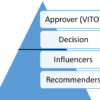Account planning is the backbone of any successful sales strategy, whether you’re nurturing existing accounts or venturing into new territory. It’s the roadmap that guides your sales efforts, ensuring that you not only meet your targets but also foster strong, long-term relationships with your clients. In this blog post, we’ll explore the art of creating robust account plans for both existing and new accounts, equipping you with the tools to thrive in today’s competitive business landscape. There are many free templates on Google.
The Importance of Account Planning
Account planning is not just a routine task; it’s a strategic imperative. It’s the process of mapping out your approach for each account, understanding their unique needs, and aligning your efforts to deliver maximum value. Whether you’re managing existing clients or prospecting new ones, account planning is the key to:
- Retention: For existing accounts, it ensures that you continue to meet their evolving needs and reinforce their loyalty.
- Expansion: With existing accounts, it helps identify opportunities for upselling, cross-selling, and expanding your footprint within the organization.
- Effective Prospecting: When targeting new accounts, account planning provides a structured approach to understanding your potential clients and tailoring your pitch.
- Risk Mitigation: It helps identify and address potential challenges, ensuring that you’re well-prepared to navigate obstacles.
Crafting a Strong Account Plan
For Existing Accounts:
- Client Analysis: Start by thoroughly understanding your client’s business. What are their pain points, goals, and challenges? What has been your historical interaction with them?
- SWOT Analysis: Conduct a SWOT analysis to assess your client’s strengths, weaknesses, opportunities, and threats. This helps you pinpoint areas where you can provide value.
- Relationship Building: Strengthen your relationship with key stakeholders. Listen actively to their concerns and ideas, and maintain open lines of communication.
- Goals and Objectives: Clearly define your objectives for the account. What outcomes do you aim to achieve? Be specific, measurable, and time-bound.
- Action Plan: Lay out a step-by-step action plan to achieve your objectives. Include tactics, timelines, and responsibilities for each task.
- Value Proposition: Highlight the unique value you bring to the table. How can your products or services address the client’s pain points and drive their success?
For New Accounts:
- Research: Thoroughly research your target accounts. Understand their industry, challenges, and competitive landscape.
- Persona Mapping: Create buyer personas to identify the key decision-makers and influencers within the organization. Tailor your approach to their needs and preferences.
- Value Proposition: Craft a compelling value proposition tailored to each target account. Explain how your solution can solve their specific problems and add value.
- Relationship Building: Establish initial contact and build rapport. Understand their pain points and challenges by asking open-ended questions.
- Customized Solutions: Develop customized solutions or proposals that address the unique needs of each target account.
- Follow-Up Plan: Outline a follow-up plan to nurture the relationship and stay top-of-mind. Persistence often pays off in new account acquisition.
The Continuous Feedback Loop
Remember that account planning is not a one-time event; it’s an ongoing process. Regularly review and update your plans as you gather new insights and as your client’s needs evolve. Seek feedback from your clients to ensure you’re delivering on your promises and adjust your approach accordingly.
In conclusion, effective account planning is the cornerstone of successful sales efforts, whether you’re managing existing accounts or pursuing new opportunities. By understanding your clients, tailoring your approach, and maintaining a feedback loop, you can create account plans that drive growth, foster strong relationships, and lead to long-term success. So, start planning, start winning!








